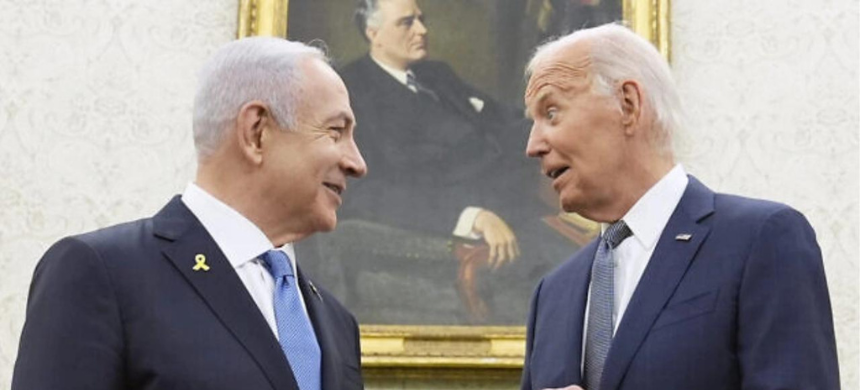US President Joe Biden expressed uncertainty on Friday regarding whether Israeli Prime Minister Benjamin Netanyahu is intentionally delaying a ceasefire deal in Gaza to influence the upcoming US presidential election. During a surprise press briefing, Biden responded to questions about the potential political motivations behind Netanyahu’s actions, stating, “Whether he’s trying to influence the election, I don’t know, but I’m not counting on that.”
He reiterated the US’s strong support for Israel, claiming, “No administration has helped Israel more than I have. None, none, none. And I think [Netanyahu] should remember that.” These remarks come as concerns grow within the Democratic Party that Netanyahu’s inaction could negatively impact the party’s prospects in the November election.
Democratic Senator Chris Murphy suggested earlier this week that Netanyahu’s hesitance to finalize a ceasefire could be politically motivated. Biden’s administration has faced criticism for its handling of the Israel-Gaza conflict, with some party members pointing to potential repercussions on Biden’s approval ratings, particularly among Arab-American voters.
Read More: Pakistan Army Assumes Control of Islamabad’s Security Amid Rising Concerns
Polls indicate that the failure to secure a ceasefire in the escalating Gaza conflict could harm the Democratic Party’s chances in the upcoming election, especially with Vice President Kamala Harris facing declining support partly due to the administration’s stance on the violence in the Middle East.
In an effort to regain support from American Muslim and Arab voters frustrated by US backing of Israel’s military actions, Harris’ senior adviser met with community leaders on October 2.
Biden, a self-declared Zionist, has advocated for a diplomatic solution between Israel and Hamas for months, indicating that a ceasefire agreement was close and might include hostage releases. However, tensions continue to rise, and no agreement has been reached. While Biden’s administration has primarily blamed Hamas for stalled negotiations, he has voiced frustration with Netanyahu, criticizing him for not advancing toward an agreement.
Netanyahu has publicly denied claims that a deal is imminent, asserting earlier this month that “Hamas is not there with a deal.” Despite the longstanding ties between Biden and Netanyahu, their relationship has become increasingly strained, contrasting with Netanyahu’s amicable ties with former President Donald Trump.
Read More: Gulf Leaders Back Palestine, Yet Many Would Welcome Israel in Challenging Iran
As Biden pushes for a ceasefire, Netanyahu continues military operations in Gaza and southern Lebanon, complicating diplomatic efforts. Biden also addressed speculation about potential Israeli strikes on Iranian oil infrastructure in response to an Iranian ballistic missile attack, stating that Israel has not made a final decision on such actions.
With the US presidential election approaching on November 5, the ongoing conflict and Netanyahu’s actions will likely continue to be significant factors in the campaign and US-Israel relations.











